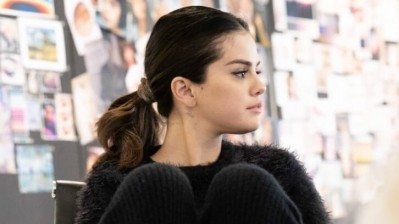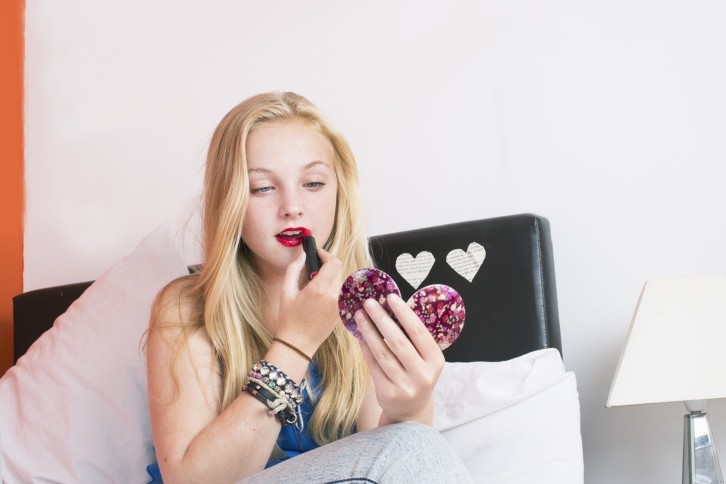Contents
(Image: Getty) Gen Alpha, AKA the ‘Sephora Kids’, has taken a keen interest in beauty, which has sparked much debate throughout 2024. We look at some of the brands that have since made it their mission to responsibly market their products to younger customers.
News reports have highlighted the trend of young girls purchasing skin care products designed to address the needs of middle-aged women, such as targeting wrinkles and hyperpigmentation, which has caused concern among parents who worry about the damaging effects of young skin being exposed such potent ingredients.
Consequently, there have been calls for beauty brands to address this by reminding younger women and girls that their skin requires minimal interference.
To add some context, it’s worth noting that teenagers having a fascination with beauty is nothing new. Flavoured lipgloss, glittery eyeshadows and nail polishes and of course Rimmel’s iconic Heather Shimmer lipstick have all topped must-have beauty lists in recent decades
However, what sets today apart from 20 years ago is the phenomenal influence of social media, where young girls have front-row access to their older peers’ skin care and makeup routines, and it’s never been easier, or more attractive, to emulate them.
Recognising this, some brands have now stepped up to actively engage with their young audience about this phenomenon.
We’ve profiled a handful of the skin care and cosmetics brands who are marketing to young audiences responsibly through positive messaging, inclusivity, building community, and education.
1. Drunk Elephant
Drunk Elephant was the ‘poster child’ for the ‘Sephora Kids’ trend. The skin care brand gained notoriety due to its cult-like following among Gen Alpha – with its vibrant packaging, young models in its ads, and tween-friendly routines like the Drunk Elephant Smoothie – it was inevitable that this brand would capture the imagination of pre-teen girls.
When Drunk Elephant faced criticism for its active ingredients that some felt would negatively impact young skin, its tactic has been to address concerns head-on.
An Instagram post penned in December 2023 clarified the situation, stating: “Many of our products are designed for all skin, including kids and tweens. Stay away from potent products with acids and retinols – their skin does not need these ingredients yet.” This proactive stance exemplifies how brands should address safety and efficacy concerns for younger demographics.
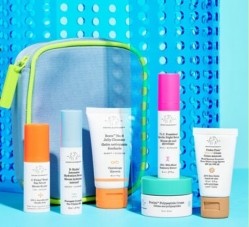
2. Evereden
Skincare brand Evereden believes that skin care should be for the entire family, and as a result, the brand provides dermatologist developed products for kids, mums-to-be, and women of all ages and demographics.
The brand, which recently took part in a CosmeticsDesign webinar about innovating in niche spaces, is keen to emphasise that they take skin care for kids very seriously, adapting a ‘safety-first’ approach, with products free of harsh ingredients, instead using gentle and clean ingredients that are safety tested for skin sensitivity.
Evereden’s social media feeds reflect the brand’s reverence for their teen/tween audience, with images of young girls playfully applying products to their skin. Mindy Zou, head of omichannel growth at Evereden, spoke to CosmeticsDesign-Europe about the Sephora Kids phenomenon, and why it’s so crucial for brands to act responsibly when it comes to creating products for this impressionable demographic.
“Gen Alpha has never known a world without technology,” Zou stated. “As avid users of YouTube and TikTok in particular, kids today are increasingly influenced by videos of older women’s beauty routines, becoming exposed to skin care products targeted towards mature skin. While it’s natural for children to aspire to emulate these behaviours, parents should ensure they are purchasing products that are appropriate for their young skin.”
“When formulating for children and tweens, it’s crucial to consider that their skin is thinner and more sensitive than adults. Kids do need to cleanse, hydrate, and protect their face and body. However, they shouldn’t be exposed to harsh chemicals frequently found in adult skincare,” said Zou.
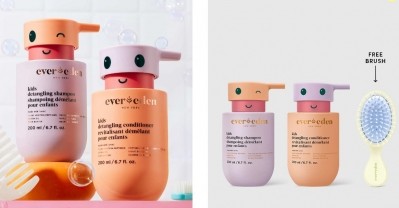
3. Bubble
Just the brand name alone conjures images of childlike playfulness. Bubble leans into its appeal to a younger demographic. With brightly coloured packaging, childlike fonts, animated characters on the packaging, and well-placed collaborations with franchises like Pixar’s Inside Out 2, a film that charts the mental health journey of a young pre-teen – it’s keenly aware of the wants and needs of Gen Alpha.
The brand considers itself a disruptor in the skin care space, forging a new pathway where transparency, education, affordability, and homing in on the unique challenges faced by younger skin typically face take priority.
“We searched for amazing products made specifically for youthful skin and found…nothing”, states the brand’s website. “Now, we’re shaking up the face aisle with dermatologist-developed scientific skin care.”
Recognising the mental health challenges that Gen Alpha are forced to deal with in this post-Covid world, Bubble is also a passionate advocate for quality mental health for young people.
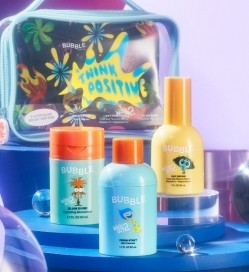
4. Byoma
Launched in 2020, Byoma has established itself as the go-to brand for skincare enthusiasts who want quality and affordability. It should come as no surprise then that the brand has been readily embraced by teens and tweens, who are attracted to its approachable, accessible standing.
Byoma’s teen-friendly packaging in pastel shades and modest price tag has culminated in the brand achieving +314.3% yoy growth, according to a report on UK skin care brands ranked by beauty trends and data company Spate.
Its key demographic is young consumers, particularly Gen Z and Gen Alpha, and this is reflected in the brand’s strong emphasis on educating their youthful audience. Byoma’s website and social media pages features detailed information on skin routines, and skin concerns, and it recently released a Smart Skin Scan Tool – an AI-powered tool that creates a profile of your skin type and a curated routine.
Models used in ad campaigns and on their social media platforms tend to be young and fresh faced (sans makeup), and this is mixed with everyday people who fall within the brand’s key demographic. The ethnically diverse models that are represented speak to Gen Z and Gen Alpha’s strong affinity for inclusivity.
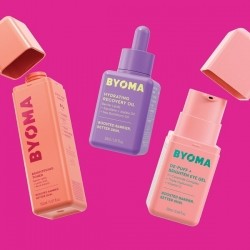
5. E.L.F (Eyes, Lips, Face) Cosmetics
Over the last four years, E.L.F has emerged as a brand that’s beloved by its teen/tween brand fans, and its digital marketing strategy has played a huge role in its success. E.L.F Cosmetics was one of the first major cosmetics brands to truly embrace TikTok, and it has certainly paid off. As it currently stands, the brand has 1.7m TikTok followers, and has amassed over 10bn content views.
Of course, there are other factors that have contributed to its star status. Renowned for its affordable price point, clean ingredients, and approachable status – this magical combination has certified it’s ranking as one of the top 10 skincare brands among a teen demographic.
The brand’s campaigns truly speak to its core demographic of Gen Z and Gen Alpha, using language that they are familiar with, as well as plenty of humour, and encouraging open dialogue between brand and customer.
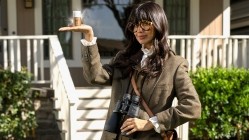
6. Rare Beauty
Rare Beauty, which was founded by Selena Gomez in 2019, personifies responsible marketing to younger audiences. The brand’s mission statement is encouraging its young customer base to celebrate their unique quirks instead of concealing them.
Gomez’s emphasis on mental health resonates with young people feeling pressured to appear perfect on social media. A pinned Instagram post states, “You are not defined by a photo, a like, or a comment. It’s about accepting who you are and finding beauty in your imperfections.”
Rare Beauty’s social media features its customers, as well as Gomez herself, often wearing little to no makeup, applying products. This empowers younger consumers to feel they belong, knowing that despite her superstar status, Gomez is ‘just like them’.
